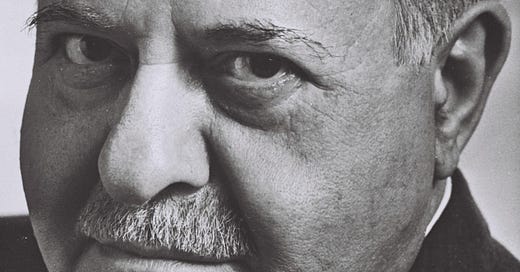I think about the ways in which Yiddishkeit, Yiddish culture and language, vanished almost entirely in a relatively short span of time. What’s that about?
There is a way in which the secular Jews, the atheist Jews like my Dad and his brother, and their parents, got marooned or cast away on the shore of communism with their language as part of their baggage, and all of the other Jews of the world turned to Israel and to Hebrew, partly as a means of somehow reinventing themselves or rebranding themselves. That’s it, it was a rebrand. And Yiddish, evidently, could not be part of that rebrand. (Yiddish exists in the US today mainly because it is still spoken by Hasidic Jews, who are historically insular enough that their culture and language don’t overlap much with that of even mainstream Orthodox Judaism.)
Why not include Yiddish, when it had recently been the global language of the Jews? When the word Yiddish means Jewish? Michael Chabon delves into this in his speculative fiction detective noir novel The Yiddish Policemen’s Union, how after the Holocaust, the question of where to put the Jews, the question of the anti-semites of the world since ancient times, suddenly had an answer -- but not all the Jews would be welcome there.
Or, at least, some Jews were suddenly Jewy enough to go to the Holy Land but the ones who spoke Yiddish had to get left behind. How did that whole decision really go down? How did the Jews like my grandparents, who had some legitimate claim on the artisanry of Yiddish writing, playwriting, poetry, storytelling, music, artwork and culture -- how did they get increasingly excluded
Keep reading with a 7-day free trial
Subscribe to The Creative Aid Society to keep reading this post and get 7 days of free access to the full post archives.


